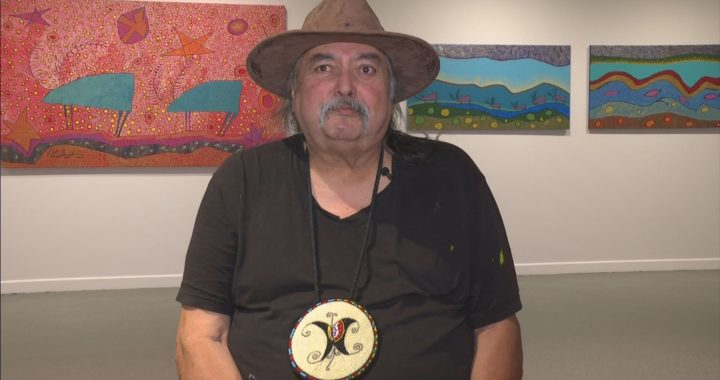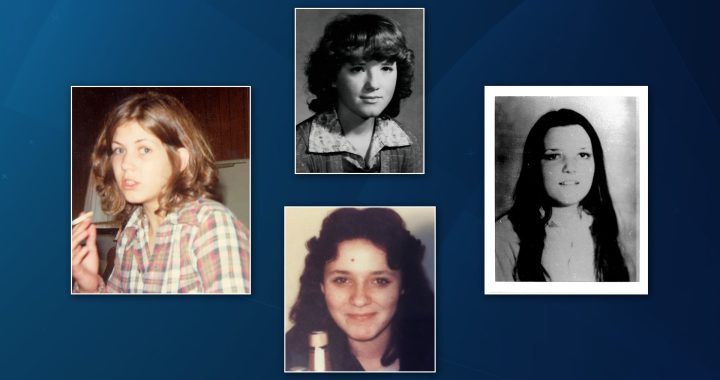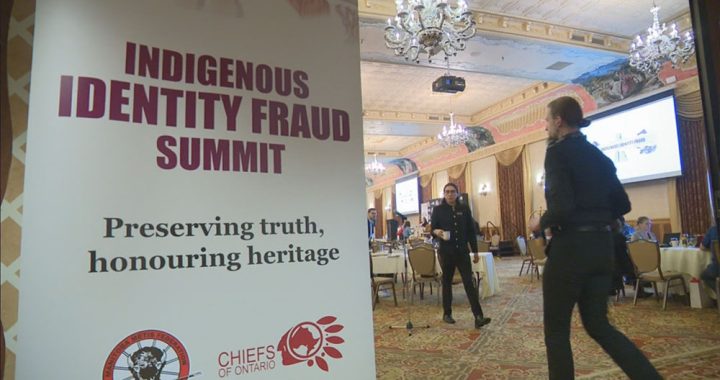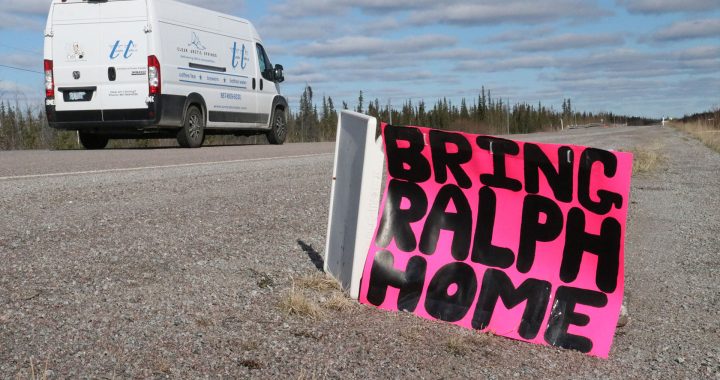
Warning: This article contains content that may be disturbing to readers. Discretion is advised.
Self-confessed serial killer Jeremy Skibicki calmly described what he said were the last minutes of his four victims’ lives in a Winnipeg courtroom Wednesday.
In a videotaped interview with homicide detectives played for the court, Skibicki is seen dressed in white and sitting in a small room at Winnipeg Police Service (WPS) headquarters, often leaning his head against a wall.
The detectives who interviewed him said they found, among other evidence, women’s clothing and underwear in his North Kildonan home, some spattered with blood.
“I guess I got sloppy,” Skibicki said.
“Do you think you would have stopped (the killing)?” asked Sgt. Greg Allan.
“No,” Skibicki replied. “I wanted to.”
The 37-year-old Winnipeg man was arrested May 18, 2022 and charged with one count of first-degree murder in connection with the death of First Nations woman Rebecca Contois.
In December 2022, police added three more counts of first-degree murder for the deaths of Marcedes Myran and Morgan Harris – who were also First Nations – and an unidentified victim given the spirit name Buffalo Woman, whom police believe to be Indigenous.
Skibicki entered a plea of not guilty to the four counts of first-degree murder in November 2023. Then, at the start of his trial, admitted to “unlawfully” committing the crimes and asked the court to find him not criminally responsible (NCR) due to mental illness.
Being found NCR means the accused committed the crimes but couldn’t appreciate what he was doing.
All of the women were killed within weeks of each other between March 15, 2022 and May 16, 2022, police have said.
Skibicki, dressed in a sweatshirt and pants, recounted the violent murders, gruesome dismemberment and tossing of remains in a calm, matter-of-fact voice.
“She came over Saturday and was killed?” Allan asked of Myran, who was 26.
“Yeah,” replied Skibicki, going on to describe Myran as the “heaviest” of the four to maneuver in and out of his bathtub, where he said he drowned the victims after putting them in a chokehold or strangling them.
He said he left some of the bodies in the tub for hours and used Pine-Sol liquid cleaner to mask the smell.
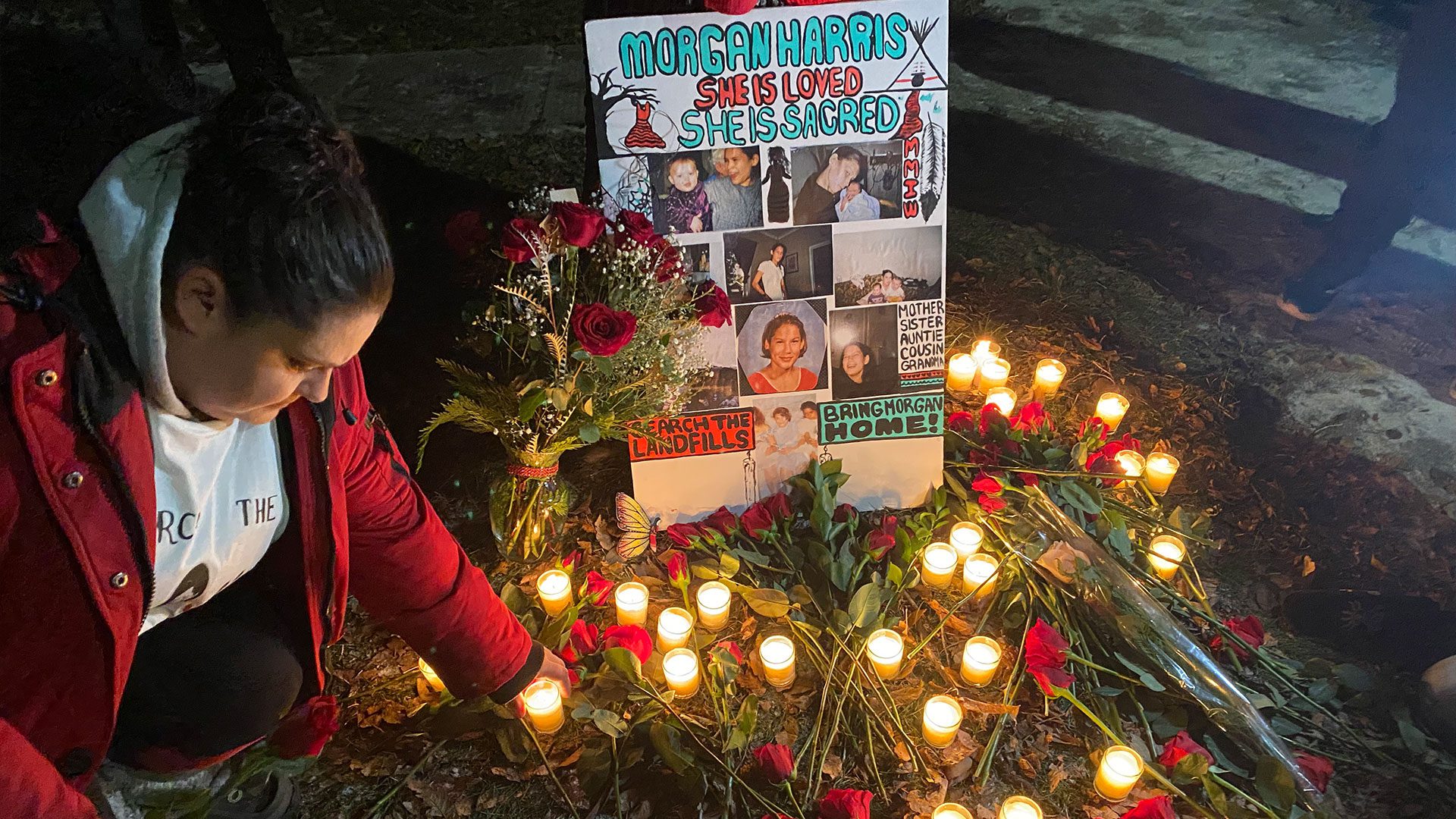
Some of the facts were hazy, Skibicki noted, because he was frequently high on drugs.
He said he killed Buffalo Woman first after coming off magic mushrooms, but didn’t know her name and felt “bad” about it afterwards.
He shared snippets of conversations, talked about sex acts, and described the type of garbage bags he used to dispose of Contois’ remains in neighborhood garbage bins.
At one point he laughed, then said he was motivated by “hatred and disgust.”
He said he did what he did to protect the “survival of my people if we don’t start doing things like this.”
Skibicki made anti-semitic comments and talked about white supremacy.
He said he found the women, who were homeless and sometimes intoxicated, on the streets. He said he felt some of them were using him for a place to stay.
“She said she loved me, too,” he added of Contois, who he claimed to be having a relationship with. “She was bullshitting me to get what she wanted.”
He said he got angry when the young mother “started talking back” to him.
Indigenous court support workers handed out red tobacco ties at the start of Wednesday’s disturbing testimony. The pinch of tobacco wrapped in red cotton absorbs prayers in the physical world and takes them to the spirit world.
A therapy dog was also brought into the courtroom to help family members and onlookers deal with the gruesome evidence.

Skibicki said he killed Harris, a 39-year-old mother and grandmother, second.
“The first two you didn’t dismember,” said Det. Allan of Buffalo Woman and Harris.
“Yeah,” answered Skibicki as Det. Adam Hnatyshyn looked on.
Surveillance video obtained by police shows Skibicki disposing of garbage bags believed to hold the victims’ remains in nearby bins and dumpsters. He told detectives he was high on methamphetamine during the last three murders.
He guessed Buffalo Woman’s first name might have been “Angel.”
He said he used marijuana frequently, killed a rabbit when he was a child and some cats as a young adult.
Preceding a bathroom break, Skibicki said he would only speak to “white” police officers.
The interview seemed to jump from one victim to another.
As the two detectives showed him photos, Skibicki said he only knew some of the women’s names. He said he recognized one woman after seeing her face on a Bear Clan Patrol missing persons poster.
Skibicki claimed he was acting out of “savior syndrome” when he committed the crimes.
“I believe this was something that God called me to do,” he said.

As family members looked on, Skibicki described their loved ones’ features, hairstyles and how they were willing to trade sex for marijuana, food and a place to brush their teeth.
He said he had no problem physically controlling the victims and demonstrated to detectives how he strangled Buffalo Woman, who was in her mid-20s, after she tried to “power” past him.
He said Contois, 24, fought him hard.
“She took so long to die, I probably crushed her throat,” he said on the video. “I tried not to allow her to suffer.
“She just wouldn’t die.”
Skibicki revealed he had some regret about killing Myran, a mother of two, but “it was her time to go.”
Listen to the 911 call to Winnipeg Police
He claimed he showed Harris mercy by allowing her to go outside for a cigarette before he killed her.
“This is going to be her last smoke so I let her enjoy that,” he said.
After putting her in a “headlock”, Skibicki said Harris was unconscious and collapsed into the bathtub he had filled with water.
Crown attorney Renee Lagimodiere said forensic investigators found evidence on Skibicki’s computer of searches related to crime and killing. She said they also found women’s jewelry and their personal belongings in his home.
During questioning from Crown attorney Christian Vanderhooft, Allan said he did not observe Skibicki to be “hearing voices”, having hallucinations or experiencing delusions during the lengthy interrogation.
Nor did Skibicki show signs of having lost touch with reality or psychosis, the detective added.
But defence lawyer Leonard Tailleur said his client told police more than once he suffers from “serious mental illnesses”: borderline personality disorder and post-traumatic stress disorder.
Meanwhile, a national inquiry held in Canada into the crisis of missing and murdered Indigenous women and girls reported in 2019 that Indigenous women are 12 times more likely to be murdered or go missing than non-Indigenous women, and six times more likely to be murdered than non-Indigenous women.
The inquiry’s final report said Indigenous women are roughly seven times more likely than non-Indigenous women to be murdered by serial killers.
The trial is scheduled to resume Thursday morning.




